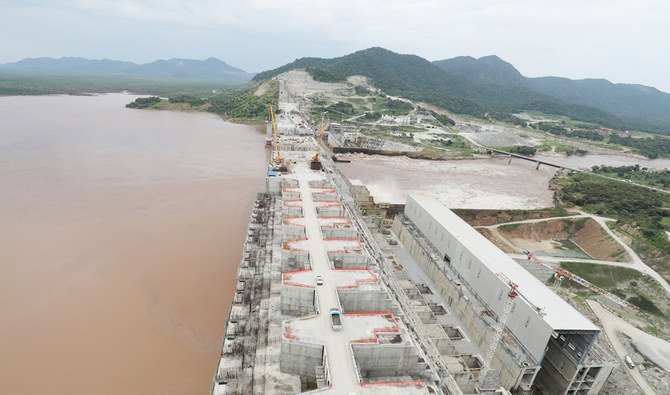Egypt, Sudan and Ethiopia failed to make progress in the latest round of African Union-led talks to resolve their years-long dispute over a controversial dam that Ethiopia is building on the Blue Nile River.
Foreign and irrigation ministers of the three nations met in Kinshasa, the capital of Congo, the current chair of the African Union. That round of talks sought to find an agreed-on approach to resume negotiations on the filling and operation of the Grand Ethiopia Renaissance Dam.
However, the four days of meetings concluded without a breakthrough after Ethiopia rejected a Sudanese proposal, backed by Egypt, to include international mediators in the talks, Egypt and Sudan said. Egypt’s top diplomat said they would again take the dispute to the U.N. Security Council.
Ethiopia’s foreign minister, Demeke Mekonnen, in a brief statement posted on Facebook said his country appreciates the AU’s efforts to resume the AU-led process “to reach a win-win outcome and invites Egypt and Sudan to follow suit.”
The foreign ministry in a separate statement asserted that “Ethiopia cannot enter into an agreement that would foreclose its current and future legitimate rights over the utilization of the Nile.”
Ahmed Hafez, spokesman of Egypt’s Foreign Ministry, said Addis Ababa rejected expanding the mediation umbrella to include the United States, the European Union, and the United Nations along with the AU.
Sudan’s Irrigation Ministry also criticized Ethiopia, saying its announced plan to add 13.5 billion cubic meters of water to the dam’s reservoir this year “is a real threat that cannot be accepted.”
“That Ethiopian intransigence would lead Sudan to look into all possible options to protect its security and citizens,” it said.
Sudan wants Ethiopia to coordinate and share data on the dam’s operation to avoid flooding and protect its own power-generating dams on the Blue Nile, the main tributary of the Nile River. The Blue Nile meets with the White Nile in central Sudan. From there, the Nile winds northward through Egypt and flows into the Mediterranean Sea.
Source: Agencies




